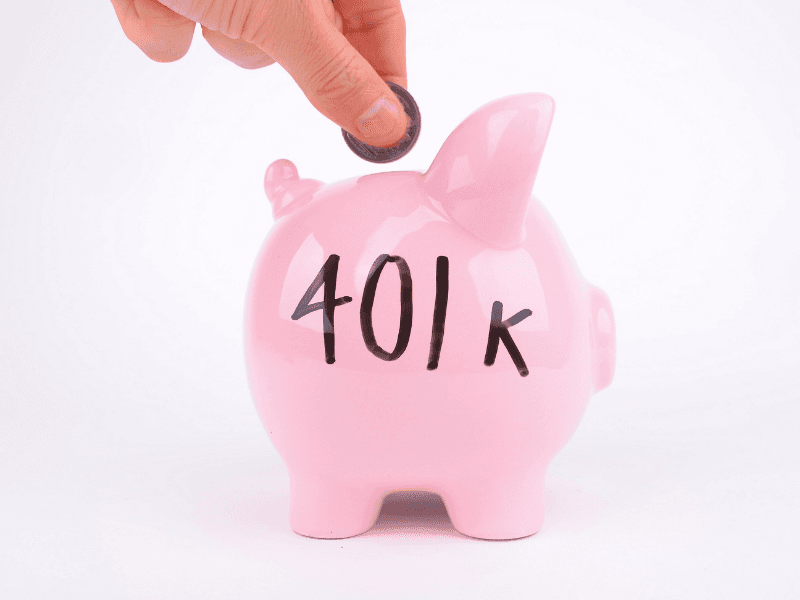
What is included in closing costs?
Closing costs are one of the primary sources of confusion for homebuyers.

“What are your closing costs?” – almost every homebuyer
If you’re purchasing your first home, the term “closing costs” could potentially mean anything to you.
Is it a fee I pay my lender? Is it a fee I pay my “closing” company? When do I pay it? Can’t I just roll it into the loan? How much are they? $100? $10,000? You probably have no idea, which is why you are here.
When you start shopping for lenders, you’re likely going to ask, “What are your closing costs?”, mainly because other than “What are your interest rates?”, you don’t really know what else to ask. The problem with this question is the answer is almost certainly unknowable at this point in the transaction.
So, what are you supposed to do?
When your lender hears this question, they’re going to have an answer, but it’s likely going to be fairly generic. Closing costs include several fees and charges that occur throughout the loan process that can be difficult to predict, especially if you haven’t found a house yet. Therefore, the lender is likely going to provide their “lender fees” when asked about closing costs. You might hear:
- We don’t charge any closing costs.
- We charge a flat fee of $x amount.
- We charge a percentage of your loan amount of x.x%.
Any of which can be true with regards to “lender fees”. However, these answers likely do not consider the entirety of potential closing costs. Closing costs is an all-encompassing term used in the mortgage industry that’s supposed to simplify something that truly is variable.
Closing costs can mean and include a lot of things, usually some combination of the following.
- Lender fee
- Origination points
- Discount points
- Appraisal
- Home inspection
- Termite inspection
- Title fee
- Title insurance – buyer
- Title insurance – seller
- Document preparation
- Transfer tax
- Mortgage tax
- Property tax
- Homeowner’s insurance premium
- Flood certification
- Flood insurance
- Prepaid interest
There are no doubt other fees and charges that might pop up, and not everything listed applies to every loan. In fact, some are state or county specific and will only apply if your local jurisdiction requires it. Mortgage and transfer taxes for example.
What closing costs can most buyers expect to see?
Before we dig into what is most commonly included in closing costs, I want to address “no closing costs”.
First, all loans have closing costs. “Who pays them” is the proper question. “No closing cost” mortgage loans are simply loans where the closing costs are all paid by the lender.
Mortgage rates are historically low, and lenders are able to offer mortgages that generate enough revenue to pay all the closing costs for the borrower and still be profitable. Just know that no one in the mortgage world works for free. The costs are being absorbed by the lender.
Common Closing Costs
Lender / Origination Fee
Lender fee and origination points or fee are interchangeable and quite easy to explain. It’s a fee the lender charges to do the loan. It can be either a flat fee, like $495 or $995, or a percentage of the loan amount, 1% for example.
It’s not uncommon for lenders to waive or have no origination fee these days for the same reasons described in the “no closing cost” section. Lenders are profitable without them, and lenders need to keep their fees down to remain competitive.
Also, you’ll typically only pay the lender fee if your loan closes. If the deal falls through, no fee is paid.
Discount Points
Lenders don’t have just one interest rate. There is a par interest rate they offer to most customers based on market conditions. However, if you’d like a rate lower than the par market rate, that’s okay. You’ll need to pay discount points to get it. Discount points are charged at closing in exchange for a better interest rate than you would have gotten had you not paid them.
As low as rates are currently, it’s important to do a thorough analysis of how much you’ll save monthly versus how much the lower rate will cost you.
Appraisal Fee
Appraisals are important, especially to your lender. They’ll require one to ensure the value of your new home supports the price you are paying for it. After all, should you stop making your monthly payments, they’ll become the new owner.
The appraisal fee is one fee nearly all lenders will require you to pay for upfront, usually by charging your credit card. Appraisal fees often cost around $500. It’s important to understand that your lender will order the appraisal. There are rules in place from the fallout of the 2008 housing crash to prevent fraudulent appraisals. The homebuyer or seller is never responsible for the appraisal order. Your lender will handle it.
Home Inspection Fee
Often confused with an appraisal, a home inspection is often a voluntary action taken by the homebuyer in an effort to ensure everything in the home is in working order. The home inspection is also paid upfront and is not really even a part of the mortgage transaction. Most lenders do not require them. However, they are common and recommended in almost all cases, especially if you aren’t expecting to be buying a fixer upper.
Home inspection costs can vary wildly. Your real estate agent will likely have two or three recommendations for you.
Termite Inspection
Certain parts of the country are highly susceptible to termite infestations, mainly the south half of the U.S. Your lender may require an inspection prior to closing, especially if you are using a government backed loan like VA, FHA, or USDA. If termites are found, or if there’s evidence of termite damage, it may need to be remedied. You’ll need to work out with the seller whose responsibility that becomes.
Title Company Fees
Title Fee
A title or escrow company will handle the closing of your loan. The title company will prepare the legal documents with information provided by your lender and real estate agent. They obviously charge a fee for this service. The fees vary depending on the complexity of the transaction, your location, and other factors. There may be charges for document preparation and other administrative duties, too. Like every other fee, this information will have been disclosed after you committed your business to your lender, so there shouldn’t be any surprises.
In addition to the title company charges, there is title insurance. Title insurance protects the respective parties in the event a claim against the home’s title arises after closing. There are two common types of title insurance.
Title Insurance – Owner’s
Owner’s title insurance protects you, the homebuyer. The premiums vary from state to state, but title insurance ensures the title company will handle any title claims made on the property after you become owner.
Title Insurance – Seller’s
You guessed it. The seller’s interests are protected via a separate title policy.
What else is included in closing costs?
When you buy a home, you’ll need homeowner’s insurance. You’ll also owe property taxes from the date you take over. Interest begins accruing on your mortgage loan immediately. That has to be paid, too. Consider this your introduction to prepaids, probably the most overlooked aspect of obtaining a mortgage loan.
Prepaids are confusing because they depend on several factors, including what time of year you’re closing on your home, when property taxes are due, what period the property taxes are for, did the seller already pay them, when is your first payment due, and on and on.
Since we cannot cover every possible scenario, here’s the gist of it.
- You’ll owe one year of homeowner’s insurance upfront.
- You’ll owe a couple of months of “reserves” for next year’s homeowner’s insurance.
- Taxes need to be paid. Every locale is different. You’ll likely need to pay some or all of the coming year’s taxes and pay into the same “reserve” as your insurance. Only it could be several months depending on when property taxes are due.
- You’ll need to prepay the interest that will accrue from your closing date through your first payment due date in order to keep your payments on schedule. This could be as many as 60 days of interest depending on what part of the month you closed and when your first payment is due.
As you may have guessed, all of this can add up quickly. Account for prepaids when budgeting for your new home. They are necessary and unavoidable.
Transfer and Mortgage Taxes
Not every state or county has them, but for the ones that do, we’ll briefly touch on mortgage and transfer taxes. Simply put, they are revenue sources for the city, county, or state charging them for doing nothing more than filing papers.
A transfer tax is exactly what it says. It is a tax for transferring ownership of a piece of property from one entity to another. Jurisdictions vary on who is responsible for paying them. Sometimes it’s the buyer, sometimes it’s the seller, and sometimes they split it. Ask your lender or real estate agent if transfer taxes apply in your area and who pays them.
A mortgage tax is different in that it applies to the new homeowner, who is taking out a mortgage to buy said home. It’s a tax for the filing of the mortgage paperwork and is usually calculated from the amount of the mortgage. Where mortgage taxes apply, they are unavoidable. That is unless you pay cash for your new home and avoid a mortgage altogether. Again, consult with your lender or agent to avoid surprises.
Mortgage and transfer taxes won’t apply to everyone, and no doubt there are items you may come across that are not mentioned here. However, most of the closing costs you are likely to encounter should no longer surprise you. There are many hands in the cookie jar when it comes to financing a home purchase with a mortgage loan. No one works for free, so remember, while no one enjoys paying closing costs, they aren’t empty fees designed to milk every last dime from you. You’re paying for services that protect you, insure you, and ultimately allow you to become a homeowner.




![What is Earnest Money? [Everything You Need to Know in 2025]](/_next/image/?url=https%3A%2F%2Fs3-us-west-2.amazonaws.com%2Fwhatsmypayment.com%2Fcontent%2Fimages%2F2024%2F09%2FEarnest-Money.jpeg&w=3840&q=75)




